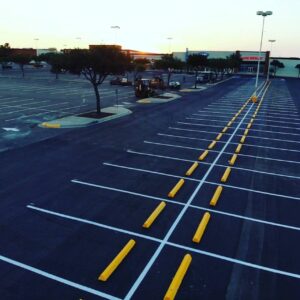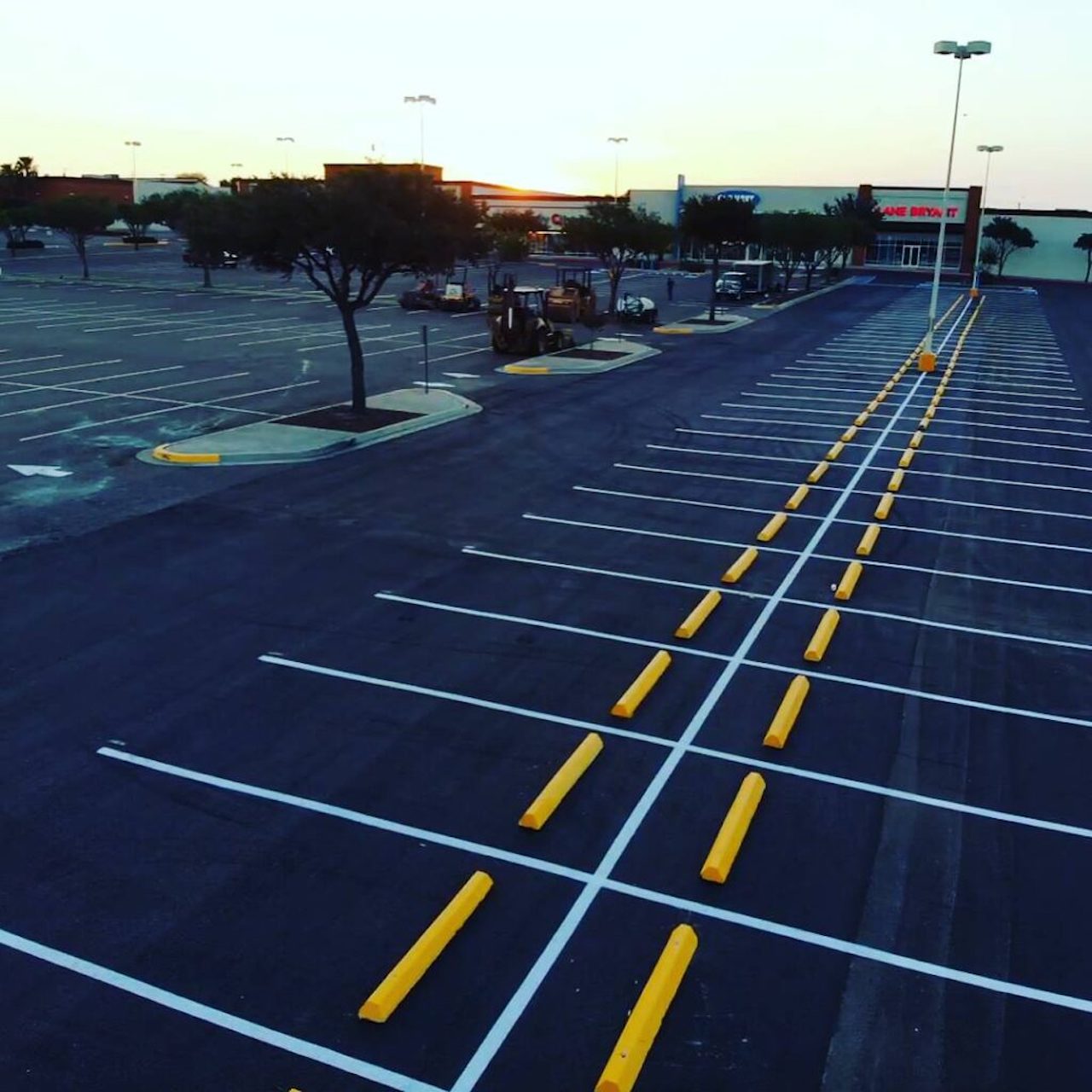
What Does the Word Look Mean When Discussing Parking Lot Maintenance?
If you do not know the condition of your parking lot, you could fail to address issues before your pavement suffers severe damage. Every month or two, take a critical look at your parking lot, and do not rush through your inspection. You can also delegate the inspection to a trustworthy employee, or you can hire a Houston parking lot maintenance professional to complete the task. If you hire a parking lot maintenance contractor to inspect your pavement, you probably will not need monthly inspections. In most cases, your parking lot maintenance company will recommend inspections every three to six months. However, the condition of your parking lot, its age, the traffic it supports, and other factors will determine your schedule.
Why Is Cleaning Part of a Parking Lot Maintenance Routine?
The short answer is that a clean pavement is less likely to suffer damage. The long answer is a bit more complex.
1. Any experienced contractor who performs parking lot maintenance in Houston can tell you that it is impossible to prevent every vehicle from leaking one or more fluids onto your pavement. Hydraulic fluids, oil, diesel, gas, and many other automotive fluids can interact with asphalt paving to turn it soft and crumbly. Cleaning up deposits of automotive fluids can help prevent potholes, cracks, and other damage. If your parking lot has intact sealcoating, remove these fluids every four to six months. If you are still waiting for a new pavement to cure before your asphalt parking lot maintenance contractor applies its initial sealcoating, clean up fluids every month.
2. Your pavement as well as its sealcoating can be scratched by abrasive particles. Regular parking lot sweeping to remove loose gravel, sand, and other abrasives can help prevent this damage.
3. Piles of debris, including grass clippings, cardboard boxes, dead leaves, and trash, trap water against the surface of the pavement. This increases the risk of water finding a way to penetrate into the structure. It also encourages the hidden growth of mold, algae, and fungi that can damage asphalt pavements. Furthermore, these organisms, as well as certain types of paper trash, can permanently stain your pavement.
How Can Routine Parking Lot Maintenance Protect Pavements?
As discussed, cleaning your parking lot can help protect your pavement from certain types of damage. However, there is one additional Houston parking lot maintenance service that is a virtual necessity for asphalt pavements, and that is sealcoating. Although automotive fluids can eat through sealcoating, it is not a particularly fast process. Thus, you have more time to clean up these fluids before they can start damaging your pavement. Perhaps more importantly, sealcoating blocks ultraviolet radiation, preventing your asphalt pavement from becoming hard, brittle, and dry. As a bonus, sealcoating helps prevent your pavement’s color from fading, and it can even restore faded pavements to their original color.
Which Repairs Should Be Part of a Routine Lot Maintenance Plan?
When discussing asphalt parking lot maintenance and repair, it is difficult to draw a precise line between the two categories. There are even debates among Houston parking lot maintenance professionals over how to distinguish between repair, maintenance, and paving procedures. That said, there are certain repair procedures that most parking lot maintenance contractors usually count as maintenance.
1. Asphalt crack repairs are critically important to keep water from infiltrating the structure of the pavement. The best seasons for your parking lot maintenance contractor to repair cracks are spring and autumn.
2. Asphalt resurfacing is the removal and replacement of a predetermined depth of pavement. Also known as overlaying, this procedure can provide a renovated surface that looks and performs like new. Most parking lots only need resurfacing about every 10 years.
When you need parking lot maintenance in Houston, turn to Marathon Solutions Group. We offer turnkey parking lot maintenance plans, asphalt resurfacing, pavement repair, asphalt milling, sealcoating, asphalt paving, parking lot striping, asphalt crack repairs, thermoplastic marking, bollards, parking lot signage, marking removal, and parking lot restriping. We also offer concrete repair and installation, including the construction of concrete parking lots, curbs, ramps, ADA-compliant features, and sidewalks. We are known for our commitment to exceed expectations and deliver exemplary service on every project. For a free, no-strings-attached quote, fill out our request form online, call 800-879-1147, or email Sales@Marathon-Solutions.com.


